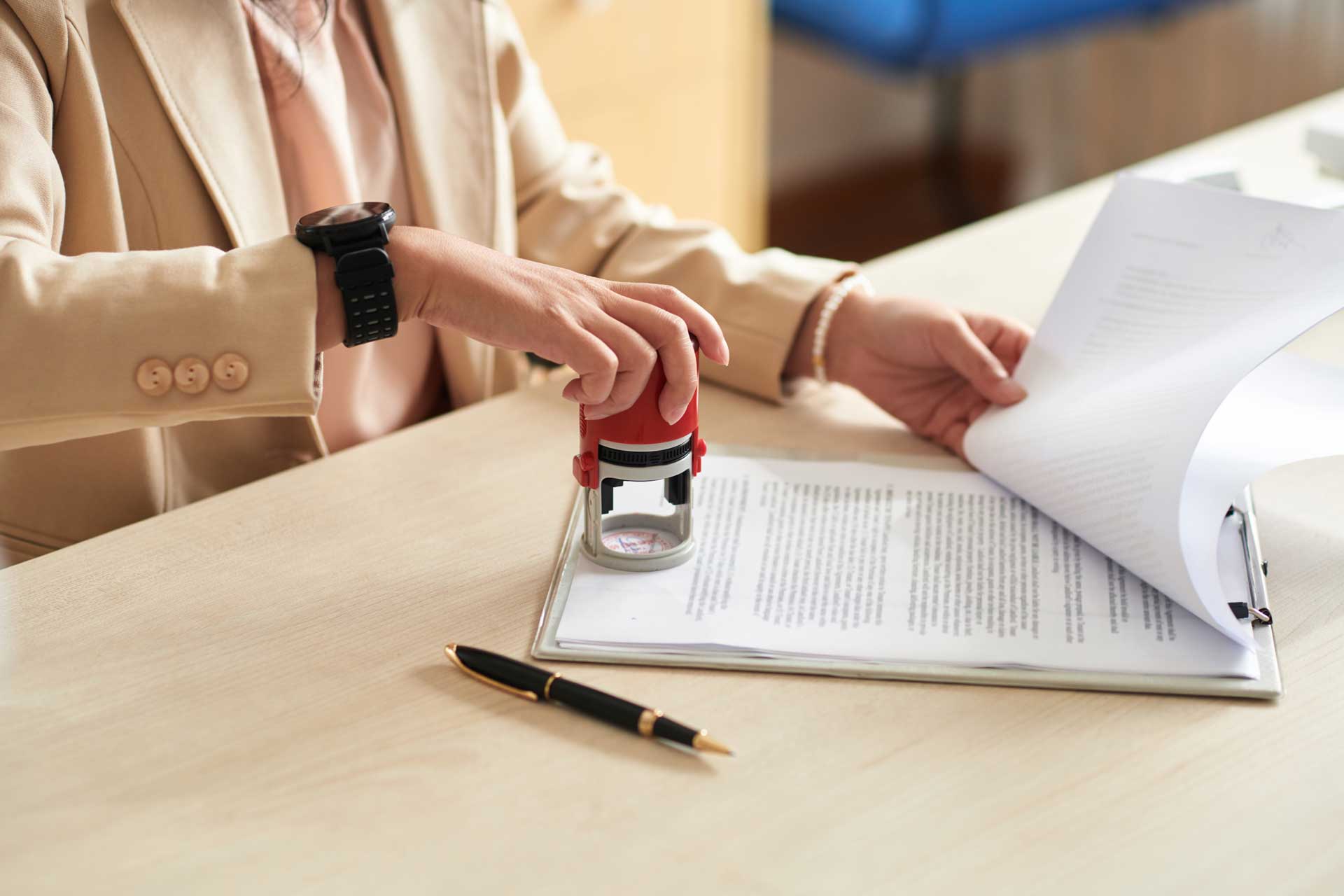
Notaries and document preparers must understand the legal landscape of international authentication when notarizing documents intended for use abroad. The process is not one-size-fits-all; it depends on whether the destination country participates in the Hague Apostille Convention or follows traditional legalization procedures.
This guide will explain everything you need to know about notarizing documents for use in Apostille vs. non-Apostille countries, highlighting the steps, key differences, and best practices.
Notarization verifies the authenticity of signatures, the signers’ identity, and the act’s voluntary nature. For domestic purposes, this is usually enough. However, additional steps are often required when a notarized document crosses borders, especially for use in foreign courts, universities, or government agencies.
These additional steps confirm that notarization is legally recognized in the foreign country. The exact process varies depending on the country’s legal agreements with the United States or other countries of origin.
This is where the Hague Apostille Convention becomes essential.
The Hague Apostille Convention, established in 1961, is an international treaty created to simplify the process of authenticating documents for use abroad. The treaty eliminates the need for diplomatic and consular legalization for documents exchanged between member countries.
As of 2025, over 120 countries, including most of Europe, Latin America, and parts of Asia and Africa, are members of the Apostille Convention.
For these countries, a single apostille certificate issued by a designated competent authority (such as the U.S. Secretary of State) is sufficient to verify the authenticity of a notarized document.
If a client needs to send a notarized birth certificate to France (an Apostille country), they only need to obtain an apostille after notarization—no embassy visit is required.
The process is streamlined when the destination country is an Apostille Convention member, making international document validation faster and more efficient.
Here are the general steps:
If the document is intended for a non-Apostille country, the process becomes more complex and often requires multiple layers of certification.
Here’s how it typically works:
Notarization is just the start for a document going to China or the UAE. Before it is valid for use, the document must pass through state, federal, and consular channels.
Understanding the differences helps ensure that documents are correctly processed the first time—avoiding delays, rejections, or added costs.
Here’s a comparison in table format:
| Feature | Apostille Countries | Non-Apostille Countries |
|---|---|---|
| Treaty Participation | Hague Apostille Convention Members | Not Members |
| Document Authentication | Apostille Certificate | Multi-step Legalization |
| Involvement of Embassy | Not Required | Required |
| Government Agencies Involved | Usually 1 (Secretary of State) | 3 or more (State, Federal, Consulate) |
| Processing Time | Generally Quick (2–10 business days) | Can Take Several Weeks |
| Translation Requirements | Occasionally | Frequently |
| Common Examples | France, Italy, Brazil, Japan | China, UAE, Egypt, Saudi Arabia |
When notarizing for international use, clarity and preparation are key. Use these best practices to help your clients and protect your commission:
Whether a document is destined for an Apostille or Non-Apostille country can significantly impact how you, as a notary, prepare and advise clients. Apostille countries benefit from a streamlined approach, while non-Apostille countries require more complex and time-consuming steps.
Understanding these differences is critical—not just for compliance but also for delivering excellent client service in an increasingly globalized world.
If you’re a notary public handling international documents—or looking to expand your services—make sure you’re well-prepared and professionally trained.
Visit NotaryPublicAssociation.org for:
Empower your notary career—one global signature at a time.
Disclaimer: All information provided by Notary Public Association is for educational purposes only and is not intended as legal advice. Notary Public Association makes no representations or warranties as to the accuracy, completeness, or applicability of the information provided and assumes no liability for any actions taken in reliance on it. Always consult a licensed attorney or your local commissioning authority for guidance specific to your notary responsibilities and jurisdiction.
Stay informed with our latest updates, tips, and exclusive offers – subscribe now!